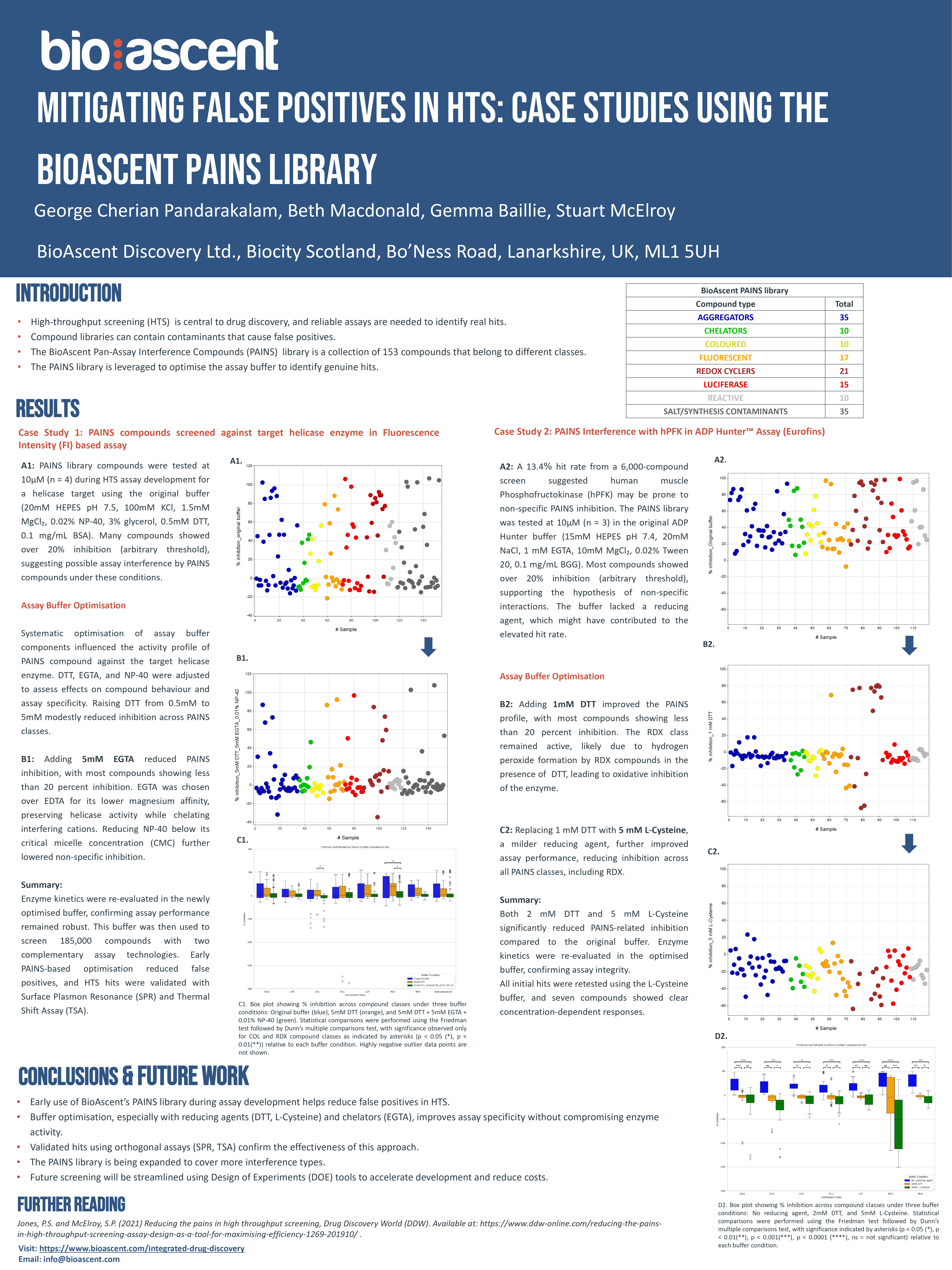
High-throughput screening (HTS) is an essential part of modern drug discovery. Its effectiveness depends on the robustness of the primary assay and the ability to distinguish true hits from false positives. Pan-assay interference compounds (PAINS) are a frequent cause of assay interference, often producing misleading results. At BioAscent, we have developed a curated PAINS library to proactively identify and manage these risks during assay development.
This poster presents two case studies highlighting the strategic use of the PAINS library to improve assay conditions for enzymatic targets - a helicase and human muscle phosphofructokinase (hPFK). In both cases, initial screens showed substantial PAINS-related interference, which was greatly reduced through systematic buffer optimisation, including the introduction of reducing and chelating agents. These changes preserved assay reliability while lowering the incidence of false positives, ultimately improving the overall quality of HTS outcomes.
Please complete the form below to download this file.




